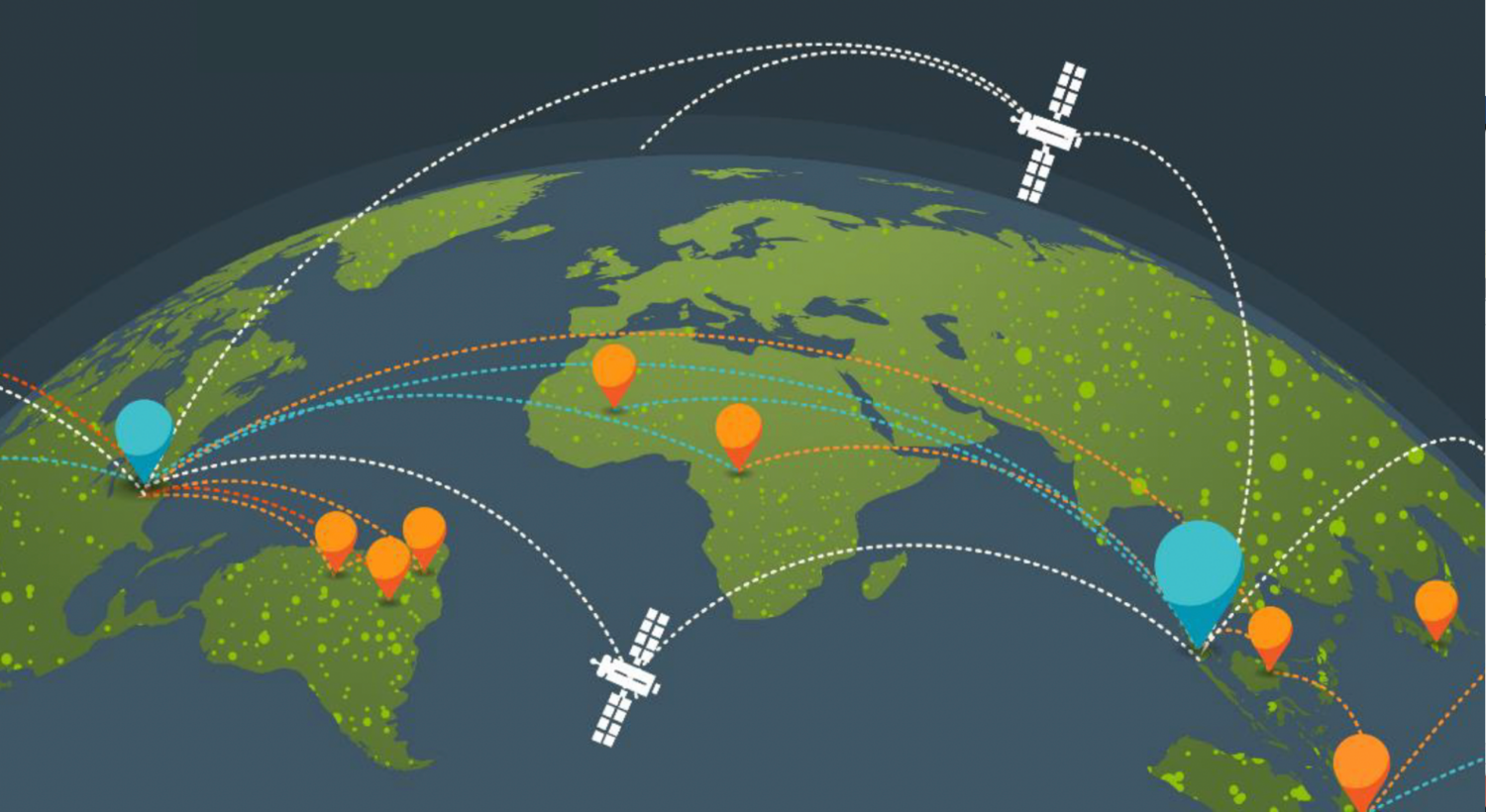
Supermarkets Across Europe Drop Brazilian Beef Over Deforestation Linked to Meat Giant JBS
Supermarkets Across Europe Drop Brazilian Beef Over Deforestation Linked to Meat Giant JBS
BRUSSELS and WASHINGTON, DC – In response to surging deforestation in Brazil and a new investigation documenting their ties to deforestation, supermarket chains in Belgium, France, the Netherlands and the UK today announced they were dropping Brazilian beef altogether and/or beef products tied to JBS, the world’s largest beef company.
The move comes following a new investigation by Repórter Brasil in partnership with Mighty Earth that tracked deforestation-linked beef to European retail store shelves, in the form of beef jerky, corned beef and fresh prime cuts. Mighty Earth shared the findings directly with the companies in advance of planned publication, resulting in today’s announcements.
“This is a watershed moment because several huge supermarkets across Europe are saying an emphatic ‘No!’ to Brazilian beef over deforestation concerns,” said Mighty Earth Europe Director Nico Muzi. “This is not a vague commitment or a nice announcement that looks good in a press release. These are a series of concrete commercial actions taken by some of the biggest supermarkets in Europe to stop buying and selling beef from a company and a country that have made too many promises and have delivered too few results.”
“Christmas has come early for the forests in the Amazon, the Brazilian Cerrado savannahs and the Pantanal wetlands,” said Muzi.
The key commitments from Europe-based supermarkets announced today are:
- Ahold Delhaize – a Dutch food retail company with over 7,000 locations worldwide and revenue of €75 billion in 2020.
- Albert Heijn (part of Ahold Delhaize) committed to stop sourcing beef from Brazil for all of its stores. It is the largest supermarket chain in the Netherlands, with over 1,000 locations and a market share of 35% in 2020.
- Delhaize (part of Ahold Delhaize) committed to removing all Jack Link’s products from its shelves. The company is one of the largest supermarket chains in Belgium.
- Lidl Netherlands committed to stop selling all beef with South American origin as of January 2022. The company is part of Lidl Stiftung & Co. KG, a German retailer chain with over 11,000 locations worldwide and revenue of over USD$75 billion.
- Carrefour Belgium committed to stop selling Jack Link’s Beef Jerky in Belgium, and the larger Carrefour Group committed to increasing surveillance in all operating countries. Carrefour Group is a French multinational with 15,500 stores worldwide and revenue of €79 billion in 2020. Mighty Earth is continuing to press Carrefour for broader action across all its stores.
- Auchan France committed to removing beef jerky products tied to JBS from its store shelves. Auchan France is part of Auchan Retail International S.A., a French multinational with almost 2,000 locations worldwide and revenue of €32 billion in 2020.
- Sainsbury’s UK committed to moving its own brand corned beef away from Brazil entirely. Sainsbury’s is the second largest chain of supermarkets in the UK, with a 16% share of the supermarket sector, over 1,400 locations and £32 billion in sales in 2020/21.
- Princes Group announced it has not placed a contract for corned beef from JBS since November 2020 and committed to a new sourcing policy for Brazilian material that includes zero deforestation. Princes is an international food and drink company based in Liverpool in the UK with £1.5 billion in revenue in 2020/21.
The research by Repórter Brasil in partnership with Mighty Earth found multiple examples of “cattle laundering” – beef processed by JBS at its slaughterhouses in low-deforestation areas such as São Paulo, but sourced from cattle raised and fed on farms officially sanctioned – and embargoed – for illegal deforestation in the Amazon rainforest, or tied to destruction of the Cerrado woody savannah and the Pantanal tropical wetlands.
With annual revenues of $50 billion, JBS is the world’s largest producer of beef – slaughtering almost 35,000 cattle a day in Brazil alone. In 2017, about a third of JBS’s beef exports from Brazil are assessed to have come from the Amazon.
In the past year, the Brazilian Amazon has seen the worst deforestation levels in 15 years. Scientists estimate two-thirds of cleared land in the Amazon and the Cerrado has been converted to cattle pasture.
“The new research shows JBS continues to sell beef linked to deforestation, even though there are around 650 million hectares of land in Latin America where deforestation-free agricultural production is possible,” said Muzi. “The big news is that Europe is not buying it now. These commercial actions as well as new EU legislation to stamp out imported deforestation, show that the grip is tightening on forest destroyers.”
“In fact, based on today’s commitments, it looks like JBS’s irresponsible practices are causing major supermarkets and retailers to turn away not just from this one company, but from Brazil-sourced and even South American-sourced beef in general,” said Muzi. “If I was another beef company from that part of the world, I would urge JBS to stop making their entire region a deforestation-linked global pariah. Certainly, there are many companies in South America that do better.”
This past April, Mighty Earth released its newest analysis of deforestation data, which found that JBS was the worst-performing meatpacker. It has been linked to 100,000 hectares of clearance the past two years. Some 75 percent of this clearance occurred in protected areas, making it potentially illegal under Brazilian law.
Corporate Statements on Today’s Commitments
ALBERT HEIJN
“Albert Heijn has decided to stop sourcing beef from Brazil for all of its stores,” said a spokesperson for Albert Heijn. “This includes private label as well as branded products. Albert Heijn will be working with our suppliers in the coming months to phase out or replace all beef products of Brazilian origin.”
LIDL NETHERLANDS
“Protecting biodiversity, including preventing deforestation, are central themes within our sustainable purchasing policy,” said Renée Bijvoets, Sustainability Manager for for Lidl Netherlands. “Given the risk of deforestation linked to beef with South-American origin, we have decided together with our supplier to look for alternative sourcing. The result is that from January 2022 onwards we will not sell beef with South-American origin in our fixed assortment.”
CARREFOUR GROUP
“Following the alert received by Repórter Brasil and Mighty Earth, we conducted an immediate investigation,” said Geoffroy Gersdorff, Group Director of Merchandise Offer Food and Non-Food of Carrefour Group. “As a consequence, Carrefour will stop selling Jack Link’s beef jerky in Carrefour Belgium and will increase its surveillance in all its operating countries. This commercial decision was taken within Carrefour’s Committee on purchasing rules for the food transition. The Group salutes the NGO’s commitment to this fight, as dialogue and vigilance on the part of everyone allows us to identify problems and make progress.”
DELHAIZE BELGIUM
“Delhaize will ensure that all Jack Link’s beef jerky will be removed from all of their stores.,” said a spokesperson for Ahold Delhaize.
SAINSBURY’S UK
“The link between cattle farming and the destruction of ecosystems like the Amazon, the Cerrado, and the Pantanal is a complex issue, which we take extremely seriously. We have taken a range of steps together with our suppliers and the wider industry to try to address this, but not enough progress has been made. We are therefore committed to move our own brand corned beef sourcing away from Brazil to ensure Sainsbury’s corned beef product can be independently verified deforestation and conversion free in origin.”
AUCHAN FRANCE
“Auchan is engaged against deforestation and land clearance in Brazil and particularly in the Cerrado,” said a spokesperson for Auchan France. “In order to support this engagement Auchan works closely with Earthworm Foundation which assists retailers in the implementation of responsible procurement policy. Also, the company signed the manifesto against deforestation soybeans one year ago. Currently our quality service investigates on your information. The product is openly sold by a lot of retailers and e-business in France. Auchan couldn’t be pointed as a specific seller of this product. To prevent any misunderstanding and complying with our commitments, Auchan decides to withdrawal out of shelves the product.”
PRINCES GROUP
“Princes has not placed a contract for corned beef from JBS since November 2020; the Princes branded corned beef sourced from JBS and identified by Mighty Earth on shelves in the UK and Netherlands will be residual sales from this last contract.
Princes takes the issue of deforestation very seriously and continually engages with suppliers to improve supply chain management, mitigate risks and enhance transparency. We have been reviewing our corned beef supply chain and are developing a new sourcing policy for Brazilian material taking into account a wide range of factors including traceability, risk, cost, quality, customer feedback, the management of indirect suppliers and a commitment to zero deforestation”
We commenced this review of Brazilian beef sourcing in mid-2021 and our updated policy will be publicly available on our website in 2022 once we have formally adopted it and communicated to suppliers. Princes does not comment on commercial relationships with customers or suppliers. Our updated sourcing policy will be discussed with Brazilian corned beef suppliers but we will not make a public comment on commercial trading relationships.”
Check out Mighty Earth’s briefings on Ahold Delhaize, Carrefour, Lidl Netherlands and Sainsbury’s here.
# # #
CONTACT:
Joel Finkelstein
202.285.0113 | [email protected]


